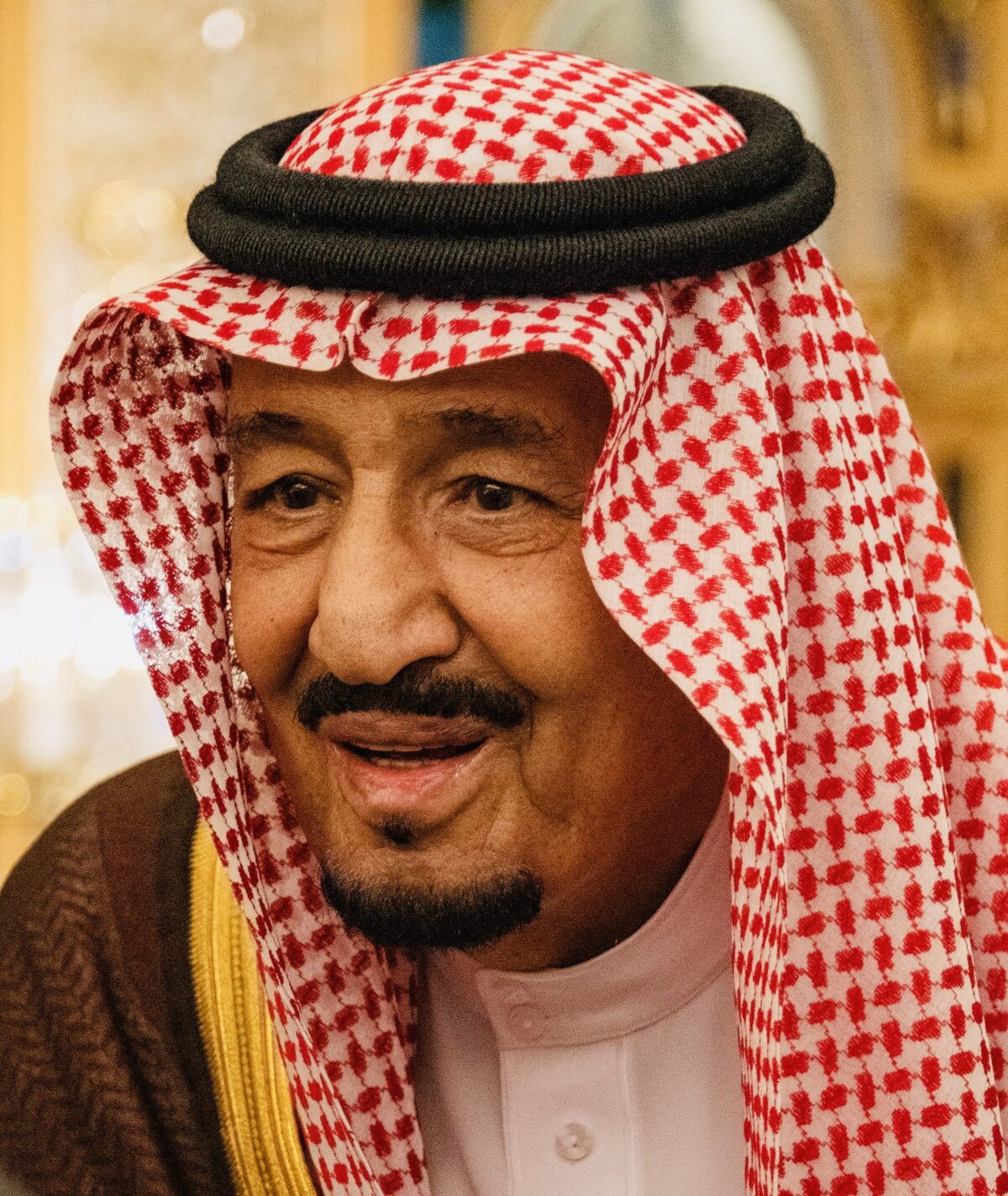Since returning to power late last December, Prime Minister Benjamin Netanyahu has made it clear that one of Israel’s major foreign policy objectives is to normalize relations with Saudi Arabia and thereby enlarge the 2020 Abraham accords and reduce the scope and seriousness of the Arab-Israeli conflict.
A normalization agreement with Saudi Arabia — a major oil and gas producer, the seat of Islam, and one of the most powerful and influential countries in the Arab world — would be a tremendous coup for Netanyahu on a personal level and a diplomat breakthrough of incalculable importance for Israel.
It would legitimize Israel’s existence in the eyes of its most of its Arab neighbors, which have been in a technical state of war with Israel since its independence 75 years ago. It would pave the way for people-to-people contacts and greater economic prosperity.
It would effectively defuse the Arab-Israeli dispute, encouraging Arab states such as Oman, Qatar and Kuwait to establish formal diplomatic relations with Israel.
It would enable Israel and conservative Arab states to form a cohesive bloc against Iran, a common regional enemy and a disruptive force in the Middle East whose undisguised goal is to destroy Israel and replace it with an Islamist Palestinian state.
Some Arab countries, like Syria, Lebanon, Iraq and Algeria, would not jump on the bandwagon, considering Israel a foreign implant that must be eradicated and replaced by a binational state.
Nevertheless, a peace deal between Israel and Saudi Arabia would most certainly be a geopolitical game changer of historic proportions.
“We view (normalization) as perhaps a giant leap toward ending the Arab-Israeli conflict,” said Netanyahu recently, underscoring his belief that it could expand the “circle of peace” in the Middle East. “This agreement could have monumental consequences, historic consequences both for Israel, for Saudi Arabia, for the region and for the world.”
Yet the chances of a rapprochement between Israel and Saudi Arabia in the near future are virtually nil.
Under the U.S.-brokered Abraham accords, four Arab countries — the United Arab Emirates, Bahrain, Morocco and Sudan — agreed to normalize relations with Israel without demanding a resolution of the Palestinian problem.
In practically one fell swoop, they followed the example set by Egypt and Jordan, which signed peace agreements with Israel in 1979 and 1994 respectively.
Significantly enough, Saudi Arabia, a U.S. ally, raised no known objections to the Abraham accords, even though King Salman is notably anti-Israel. At his insistence, Saudi Arabia has hewed to its unwavering policy of keeping Israel at bay until the gnawing Palestinian question can be satisfactorily resolved.
Saudi Arabian Foreign Minister Prince Faisal bin Farhan Al-Saud reiterated the kingdom’s position this past January, shortly after Netanyahu formed his sixth coalition government since 1996.
Since then, the chances of a normalization agreement between Israel and Saudi Arabia have receded even further, given the fact that the current Israeli government staunchly opposes a two-state solution, which lies at the heart of a 2002 Saudi inspired Arab League peace proposal rejected by Israel.
As far as the Saudis are concerned, this is not the only fly in the ointment. In recent months, Saudi officials have condemned Israel’s plans to expand settlements in the West Bank, blasted the violent confrontations at the Al-Aqsa mosque in Jerusalem, during which Israeli police beat and arrested Palestinian protesters, and criticized incendiary comments by Finance Minister Bezalel Smotrich to “wipe out” the Palestinian town of Huwara.
Saudi Arabia’s condemnations were echoed by the United Arab Emirates, which has forged wide-ranging ties with Israel. Last month, UAE President Mohammed bin Zayed Al-Nahyan dispatched Khaldoon Al-Mubarak, a senior official, to warn Netanyahu that provocative Israeli policies were placing the Abraham accords under duress.
As a result of these tensions, Saudi Arabia has dragged its feet on implementing a plan promoted by U.S. President Joe Biden to allow Israeli Arab Muslims to fly to Mecca on direct flights from Tel Aviv to take part in the annual Hajj pilgrimage.
The Saudis, however, have preserved under-the-table intelligence, security and business relations with Israel, details of which are scant and murky.
The Saudis’ recent decision to reestablish diplomatic relations with Iran after seven years of estrangement, a step brokered by Iraq and China, was regarded as another setback to Netanyahu’s hopes of engaging Saudi Arabia.
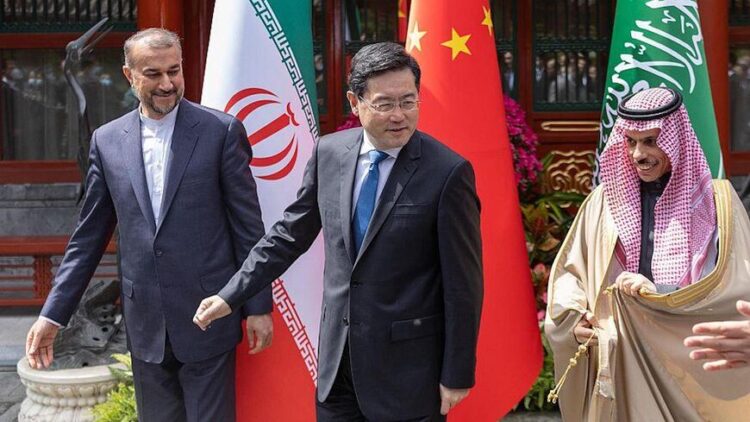
The appearance of a Hamas delegation in Mecca on April 18 also appears to represent a bow to Israel. Saudi Arabia’s ties with Hamas — an Iranian proxy that has fought four border wars and countless skirmishes with Israel — have been frosty since its complete takeover of the Gaza Strip in 2007.
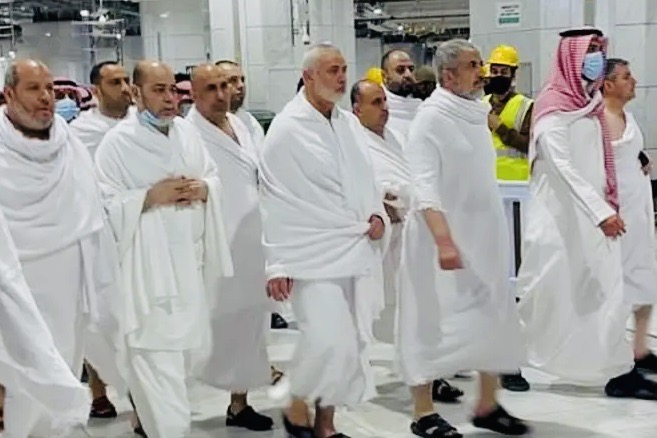
But with Hamas leaders Khaled Mashaal and Ismail Haniyeh having been photographed in Mecca, the Saudis may have been signalling that their quarrel with Hamas has run its course.
Interestingly enough, their visit coincided with a trip to Saudi Arabia by their arch rival, Palestinian Authority President Mahmoud Abbas.
In the estimation of one Israeli observer, Saudi Arabia’s overtures to the Palestinians are worrisome because they signify that normalization with Israel is not a priority for the Saudis at this moment.
According to U.S. Senator Lindsey Graham — a Republican from South Carolina who recently visited Israel after talks in Saudi Arabia with its de facto ruler, Crown Prince Mohammed bin Salman — the Saudis are prepared to move forward on normalization with Israel under three conditions.
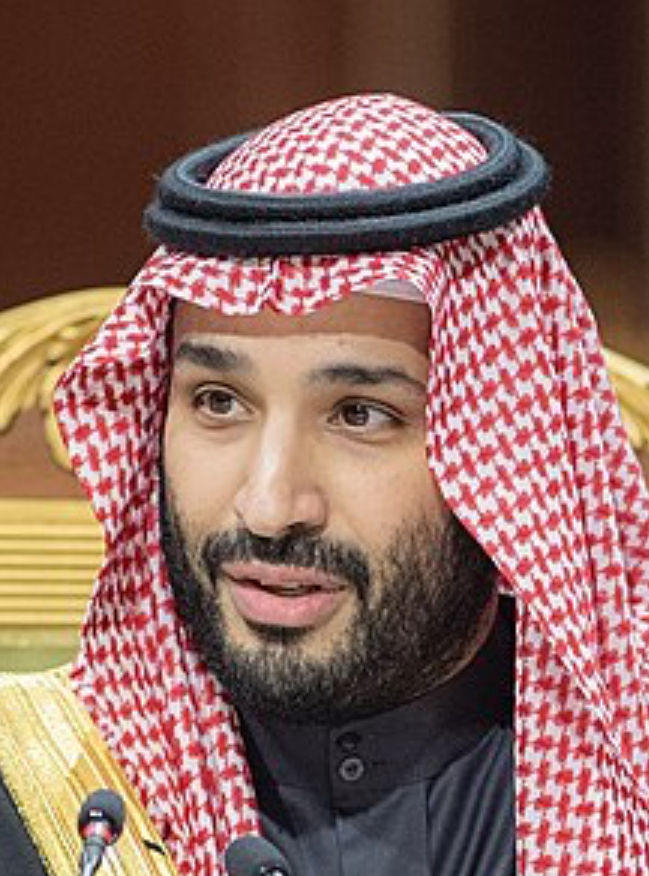
The Saudis are demanding an upgraded defence pact, a free-trade agreement, and a civilian nuclear reactor from the United States before proceeding any further.
Graham, who conferred with Netanyahu, told reporters he had been encouraged to travel to the Middle East by the Biden administration, which hopes to improve strained relations with Saudi Arabia and thereby facilitate the normalization of ties between Israel and the kingdom.
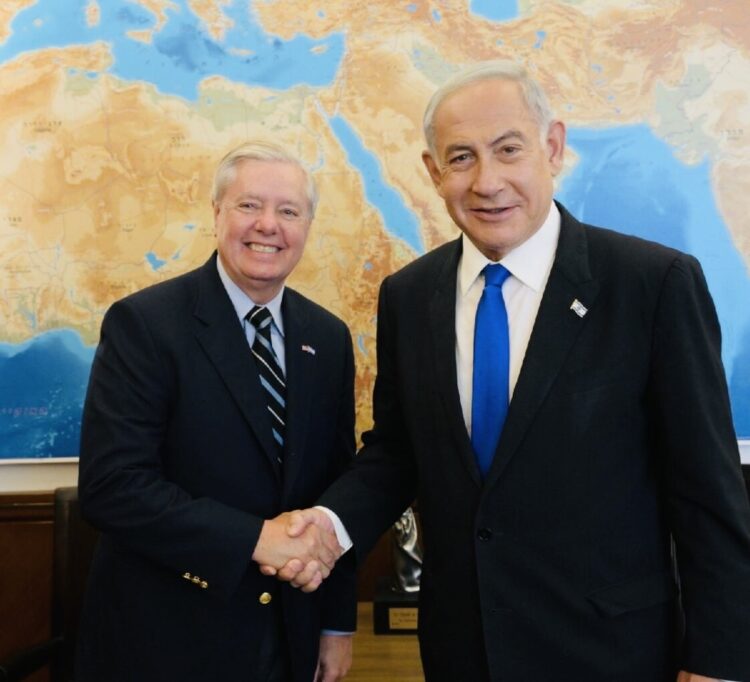
“If this could happen, it would be the biggest change in my lifetime in the Middle East,” said Graham. “It would bring about stability in a troubled region.”
Graham expressed optimism that this is within the realm of possibility. “But I will say that this opportunity is not unlimited, that if we do not do it in 2023 or early 2024, the window of opportunity may close.”
Despite the objective obstacles that block an Israeli demarche with Saudi Arabia, Netanyahu clings to notion that the Saudis are really interested in forging formal ties with Israel.
As he put it on April 20, “Saudi Arabia, the leadership there, has no illusions about who their adversaries are and who their friends are in the Middle East. They understand that Israel is an indispensable partner for the Arab world in achieving security, prosperity and peace.”
Israel’s foreign minister, Eli Cohen, also believes that a breakthrough with Saudi Arabia is imminent. “We are working on a visit to Saudi Arabia,” he said the other day. “There is still no date, but I do believe this will happen.”
Netanyahu, who secretly visited Saudi Arabia several years ago, is probably indulging in a self-serving fantasy, yet he has the ability to radically alter the political landscape in the Middle East. In theory, he can lay the groundwork for an Israeli rapprochement with Saudi Arabia if he abandons his rigid, counter-productive approach to the Palestinian question and sincerely embraces a two-state solution.
